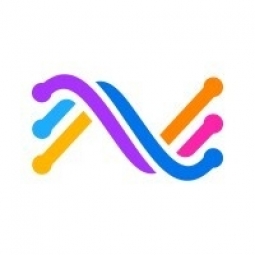Technology Category
- Functional Applications - Computerized Maintenance Management Systems (CMMS)
- Sensors - Optical Sensors
Applicable Industries
- Equipment & Machinery
- Recycling & Waste Management
Applicable Functions
- Maintenance
- Quality Assurance
Use Cases
- Manufacturing System Automation
- Smart Lighting
Services
- Testing & Certification
About The Customer
Philips Lighting, now known as Signify, is a global market leader in the development and production of lighting solutions. The company has a strong ambition to become the world's only conventional lighting manufacturing plant network. To achieve this, it has implemented Lean manufacturing principles in its operations, constantly seeking ways to eliminate waste and improve processes. Its operations in Turnhout, Belgium, are particularly crucial to this ambition, as they need to be as efficient as possible to help the company embrace the Industry 4.0 evolution.
The Challenge
Philips Lighting (now Signify), a global leader in lighting solutions, aimed to become the world's only conventional lighting manufacturing plant network. However, its operations in Turnhout, Belgium, a high-wage country, needed to be as efficient as possible to realize this ambition and embrace the Industry 4.0 evolution. The company had already implemented Lean manufacturing, with employees constantly seeking ways to eliminate waste and improve processes. However, the old PDA used for monitoring and carrying out preventative maintenance tasks on up to 200 machines was slow, unwieldy, and difficult to manage. It was not adaptable to include new items or delete obsolete ones, could only record current measurements, and offered no historical data. The PDA was inadequate for the task at hand.
The Solution
In collaboration with software developer Proceedix, PwC proposed a solution in the form of a smartphone and tablet app that allows Philips Lighting’s utility operators to carry out required preventative maintenance tasks. Rather than proposing a generic system, the three parties co-created the app to meet Philips Lighting’s specific needs. The solution aligns with the client’s Lean approach, contributing significantly to its efforts to increase quality and performance in its manufacturing operations. The app eliminates the need for reports to be created after machines have been monitored, saving time and reducing waste. The next step will be to extend the app to include maintenance activities, with step-by-step instructions enabling operators to carry out some maintenance tasks themselves. Strict authorization protocols will ensure that suppliers can only access data regarding their machinery.
Operational Impact
Quantitative Benefit

Case Study missing?
Start adding your own!
Register with your work email and create a new case study profile for your business.
Related Case Studies.

Case Study
Smart Water Filtration Systems
Before working with Ayla Networks, Ozner was already using cloud connectivity to identify and solve water-filtration system malfunctions as well as to monitor filter cartridges for replacements.But, in June 2015, Ozner executives talked with Ayla about how the company might further improve its water systems with IoT technology. They liked what they heard from Ayla, but the executives needed to be sure that Ayla’s Agile IoT Platform provided the security and reliability Ozner required.

Case Study
IoT enabled Fleet Management with MindSphere
In view of growing competition, Gämmerler had a strong need to remain competitive via process optimization, reliability and gentle handling of printed products, even at highest press speeds. In addition, a digitalization initiative also included developing a key differentiation via data-driven services offers.

Case Study
Predictive Maintenance for Industrial Chillers
For global leaders in the industrial chiller manufacturing, reliability of the entire production process is of the utmost importance. Chillers are refrigeration systems that produce ice water to provide cooling for a process or industrial application. One of those leaders sought a way to respond to asset performance issues, even before they occur. The intelligence to guarantee maximum reliability of cooling devices is embedded (pre-alarming). A pre-alarming phase means that the cooling device still works, but symptoms may appear, telling manufacturers that a failure is likely to occur in the near future. Chillers who are not internet connected at that moment, provide little insight in this pre-alarming phase.

Case Study
Premium Appliance Producer Innovates with Internet of Everything
Sub-Zero faced the largest product launch in the company’s history:It wanted to launch 60 new products as scheduled while simultaneously opening a new “greenfield” production facility, yet still adhering to stringent quality requirements and manage issues from new supply-chain partners. A the same time, it wanted to increase staff productivity time and collaboration while reducing travel and costs.

Case Study
Integration of PLC with IoT for Bosch Rexroth
The application arises from the need to monitor and anticipate the problems of one or more machines managed by a PLC. These problems, often resulting from the accumulation over time of small discrepancies, require, when they occur, ex post technical operations maintenance.

Case Study
Robot Saves Money and Time for US Custom Molding Company
Injection Technology (Itech) is a custom molder for a variety of clients that require precision plastic parts for such products as electric meter covers, dental appliance cases and spools. With 95 employees operating 23 molding machines in a 30,000 square foot plant, Itech wanted to reduce man hours and increase efficiency.



